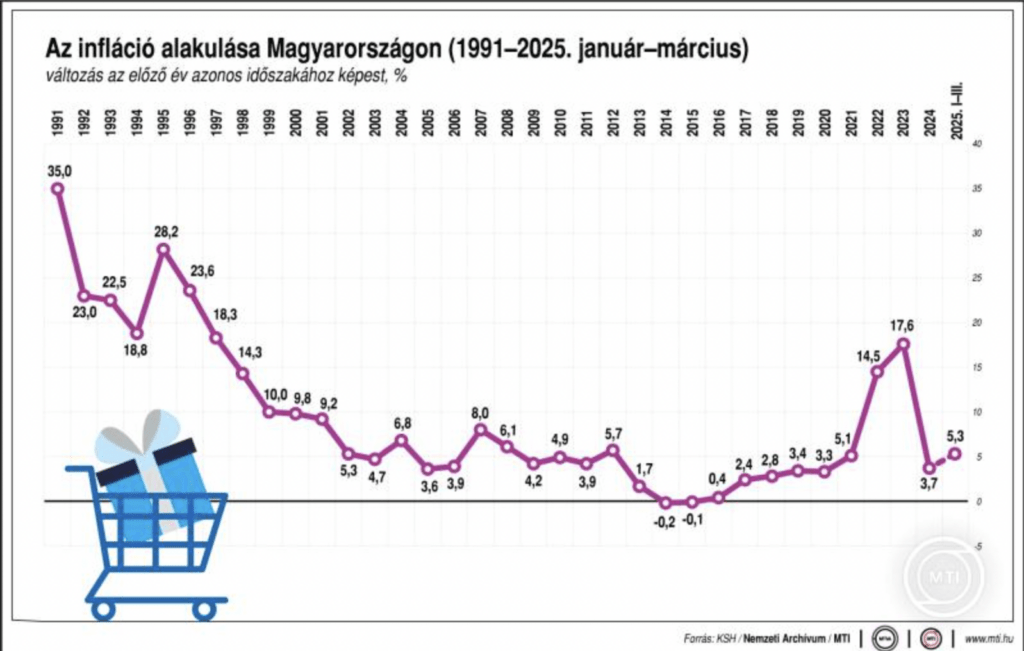NGM: margin reduction has a significant impact: inflation fell to 4.7 percent in March
The government could no longer tolerate unreasonably high price increases, so in order to protect families and pensioners, it introduced a margin reduction, thanks to which the prices of about 1,000 products were reduced or curbed. As a result of the margin reduction, the prices of the affected products have now become 18.8 percent cheaper, the Ministry of National Economy (NGM) highlighted in its commentary on the March inflation data.

They added that the government is also fighting against price increases in services, which is why it is conducting negotiations with banks and telecommunications companies, from which it expects voluntary price restrictions.
They recalled that, based on data from the Central Statistical Office, in line with preliminary government indications, inflation had already decreased in March, reaching 4.7 percent on an annual basis, while it showed stagnation on a monthly basis. According to the March data, food prices were 7 percent higher on an annual basis, and prices were stagnant on a monthly basis.
The Ministry of Finance emphasized that without the margin reduction, food prices would have increased further. The government took decisive steps to curb unacceptable food prices and introduced the margin reduction.
The impact of the government measure was immediate and brutal: the Central Statistical Office records price data by the 20th of each month, and the margin reduction came into effect on March 17, meaning that the measure had a significant impact even during this short period, it had an immediate effect and affected prices.
It was detailed: when the margin reduction was introduced, it reduced prices by an average of 17.7 percent, and by now 894 products have become cheaper, by an average of 18.8 percent. The margin reduction is continuously making its impact felt, so inflation may decrease to around 4 percent in April, while food inflation may fall below 5 percent – the Ministry of Finance predicted.
Related news
January inflation data paves the way for February interest rate cut
🎧 Hallgasd a cikket: Lejátszás Szünet Folytatás Leállítás Nyelv: Auto…
Read more >NGM-VOSZ cooperation agreement for digital commerce security
🎧 Hallgasd a cikket: Lejátszás Szünet Folytatás Leállítás Nyelv: Auto…
Read more >Related news
How to spend Valentine’s Day around here
🎧 Hallgasd a cikket: Lejátszás Szünet Folytatás Leállítás Nyelv: Auto…
Read more >PwC Consumer Loyalty Survey now available for pre-order
🎧 Hallgasd a cikket: Lejátszás Szünet Folytatás Leállítás Nyelv: Auto…
Read more >








